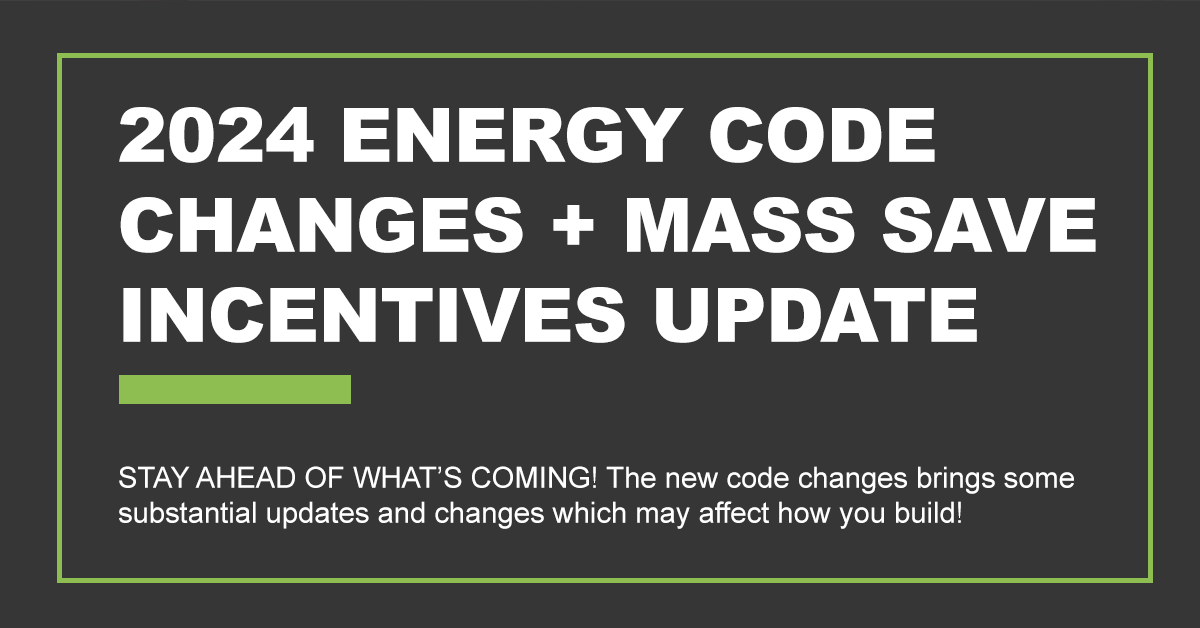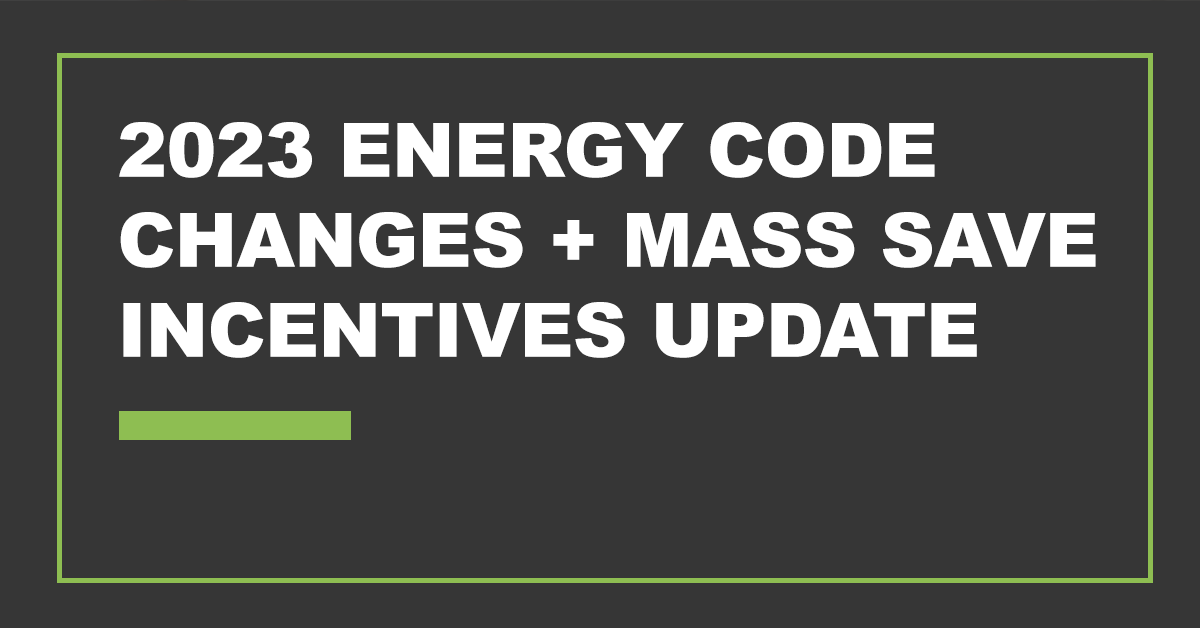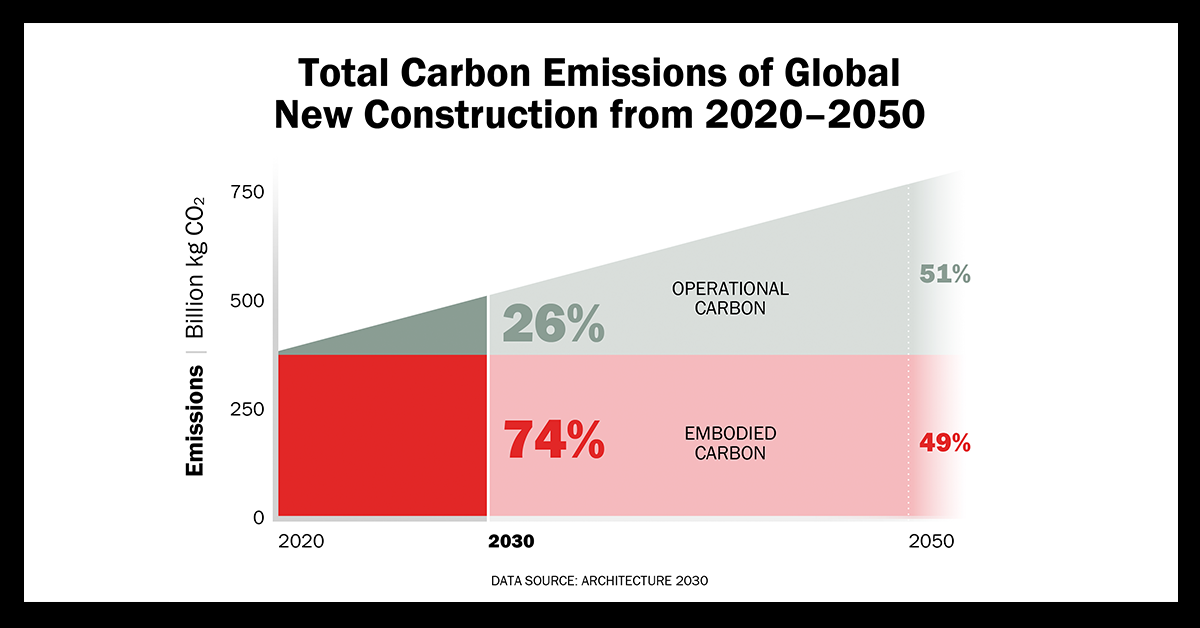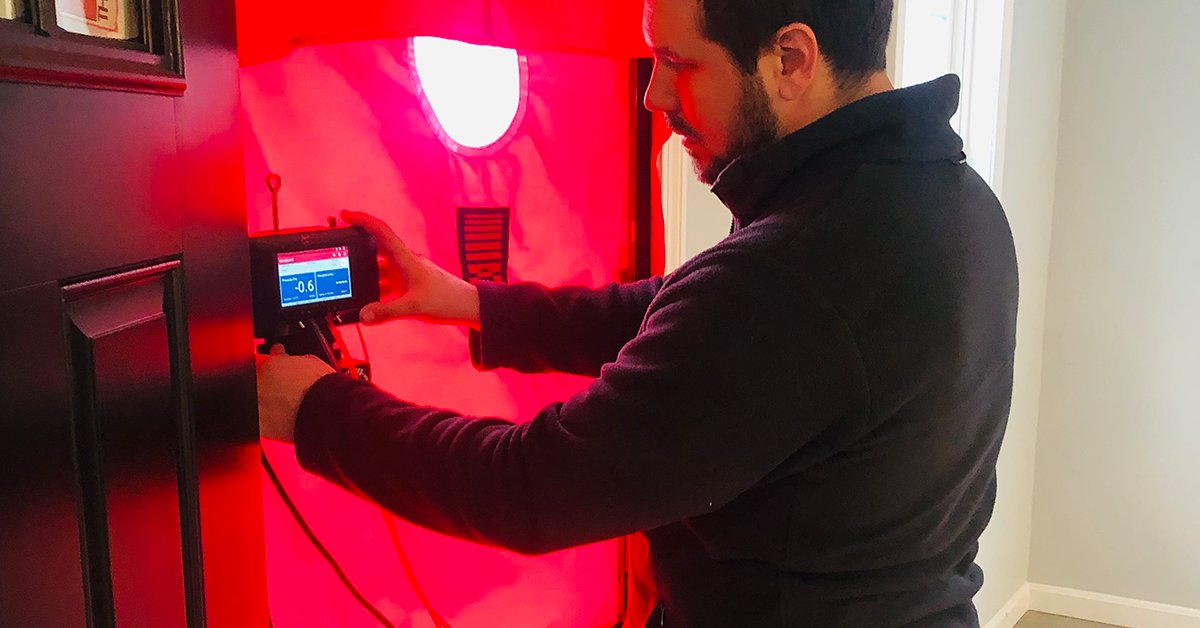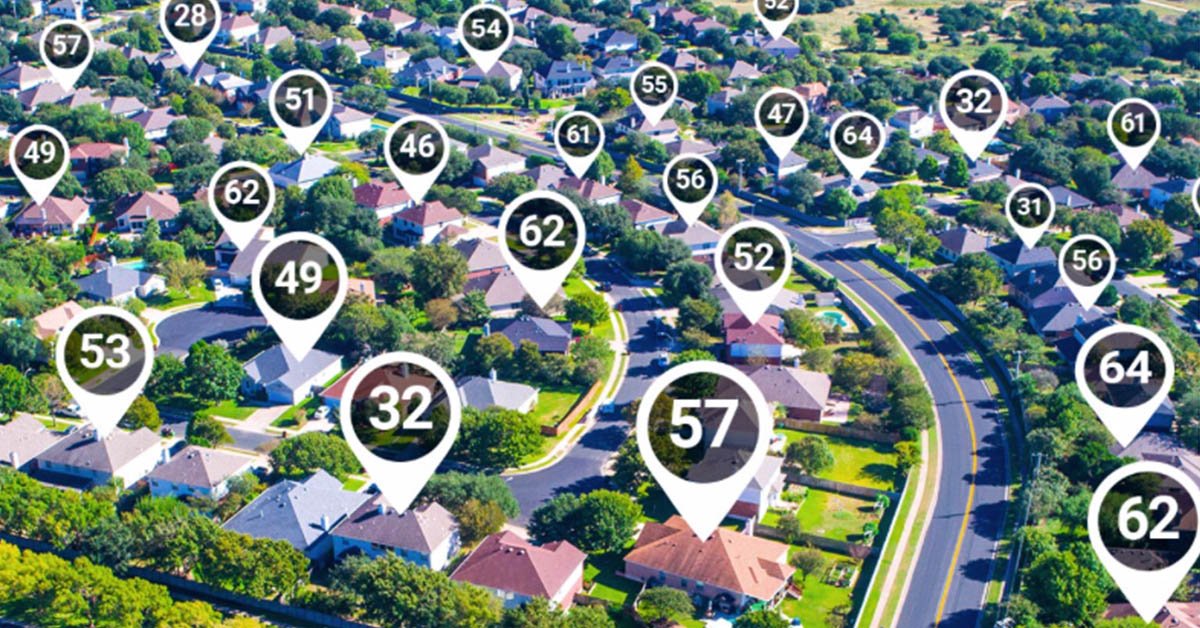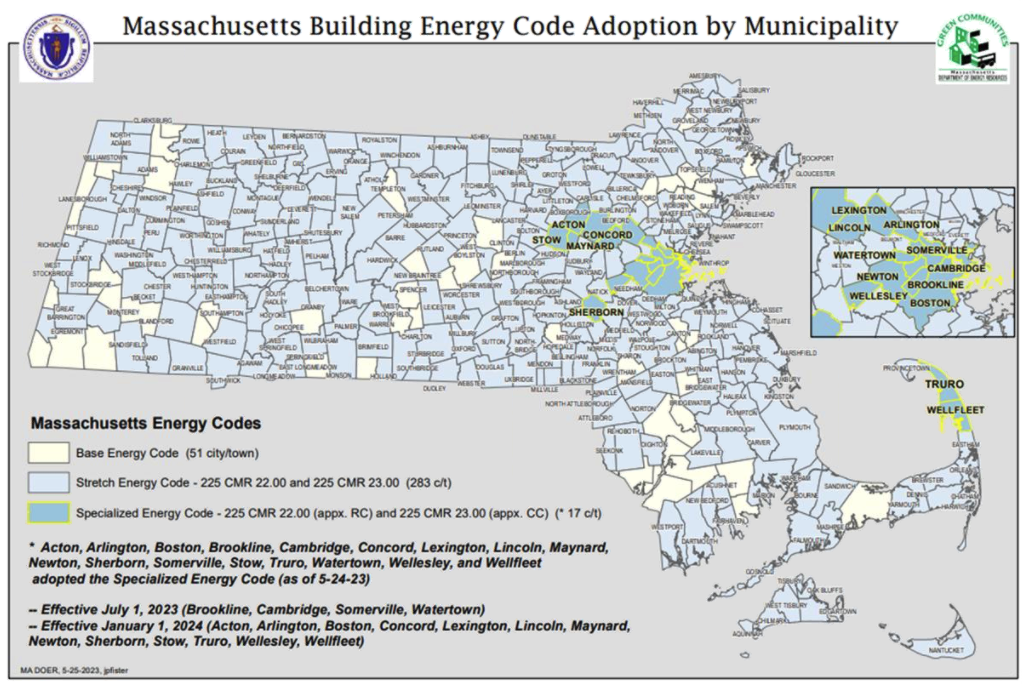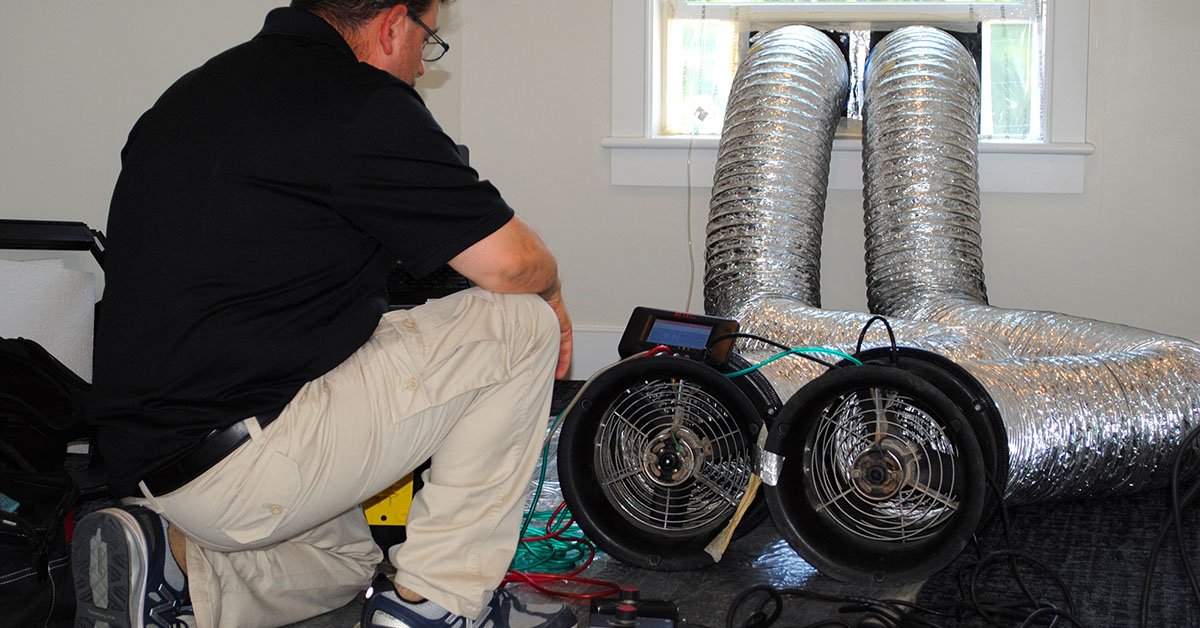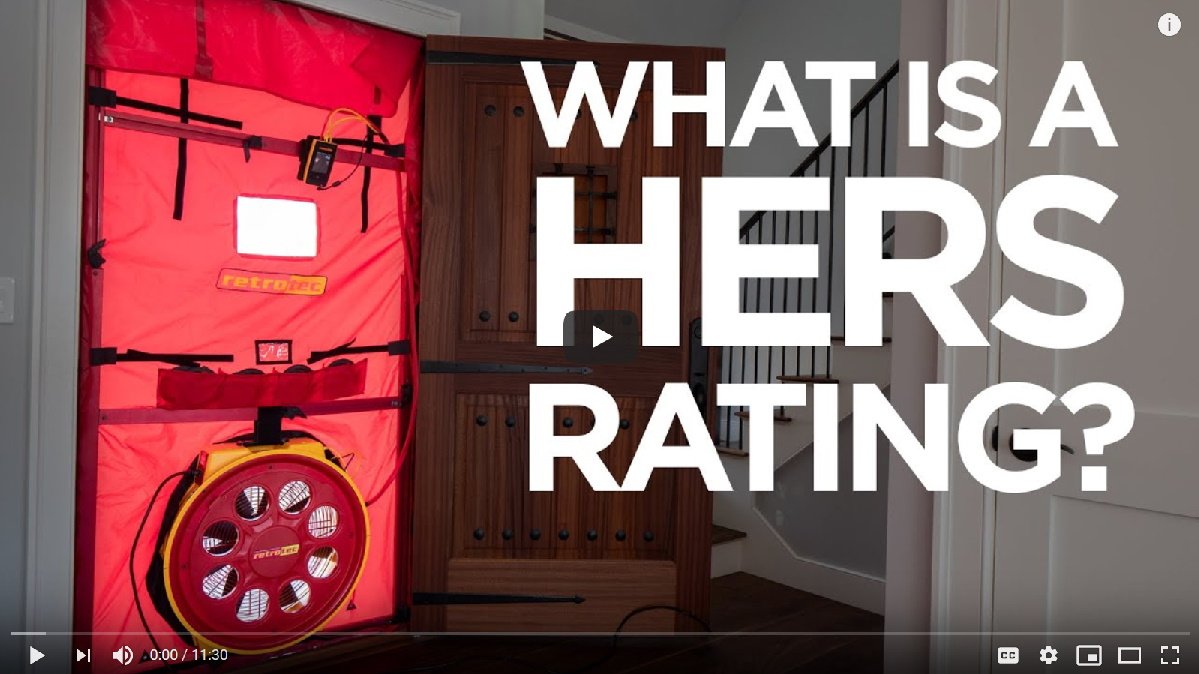2024 Energy Code Changes + Important Mass Save Updates
On 7/1/24 there will be major changes to the HERS requirements & on 9/30/24 Mass Save will no longer be able to issue incentives for fossil fuels.
2023 Energy Code Changes + Mass Save Incentives Update
The new Residential Stretch Energy Code brings some substantial updates/changes which may affect how you build.
What is Embodied Carbon and Why Does It Matter?
Climate change is the existential crisis of our time and Embodied Carbon plays a major role. Learn about why it matters and how you can help make a difference.
How To Get a Blower Door Under 1.5 ACH for the New All-Electric Program
Building an all-electric home? Here’s how to meet one of the 7 requirements to get $15k for single-family homes and up to $22,500 for multi-family buildings (up to 4 units) in incentives through the new Mass Save All-Electric Homes Program.
What Is a HERS Rating & How Can It Help Me?
Whether you have performance goals, need to meet code compliance or are interested in incentives through the Mass Save® program, learn how a HERS Rating can help you.
Stretch Energy Code Q&A
Has the city or town you are building in adopted the Stretch Energy Code? Check out our Stretch Code Q&A article to learn more.
Building Performance Testing
Performance testing is integral to the HERS Rating process. Learn how this suite of tests allows us to quantify the performance characteristics of your home.
Air Sealing With AeroBarrier
Learn how AeroBarrier™ can significantly improve your indoor air quality and reduce your heating and cooling costs.
Video: What is a RESNET HERS Rating?
Curious about what goes into a RESNET HERS Rating? Check out the video we did with NS Builders to find out!
$2000 45L Tax Credits
The Energy Policy Act (EPACT) 45L tax credits of $2000 per qualified residential unit are back! Call us at 508-833-3100 to learn more.
2021 High-Rise Building Code Changes
There are new energy code requirements for high rise buildings. All new 4 & 5 story buildings now require a HERS rating for every unit. Click to learn more.
Check Us Out on This Old House!
We perform a blower door test on Episode 4 of This Old House’s 2020 Idea House Build: Cottage on the Cape series!


